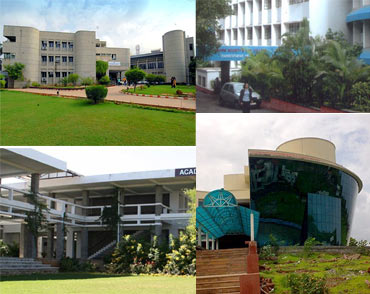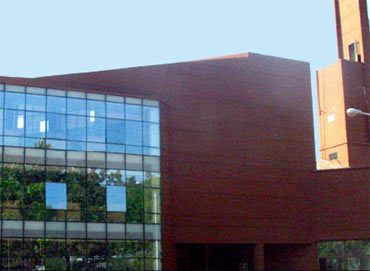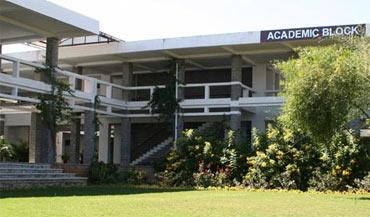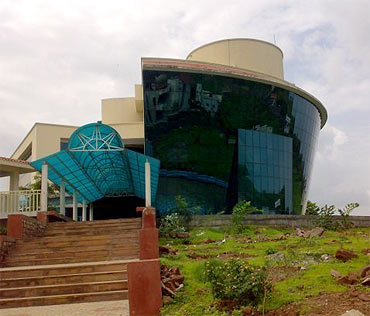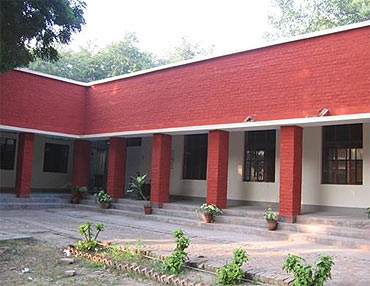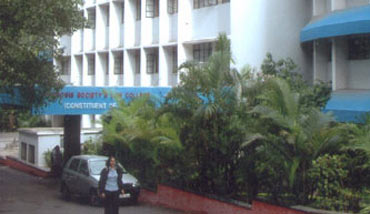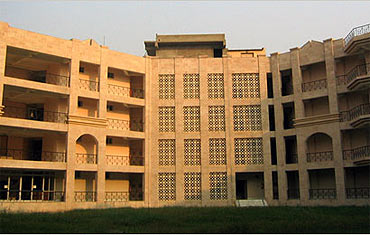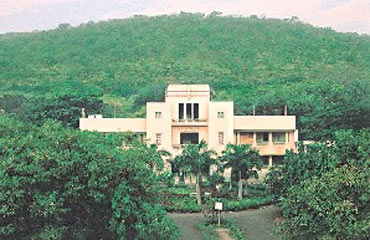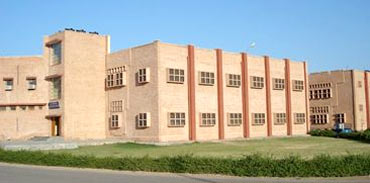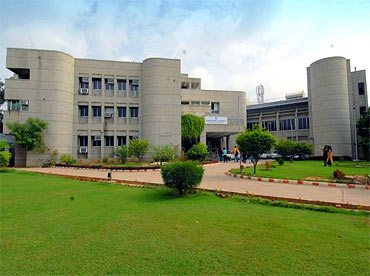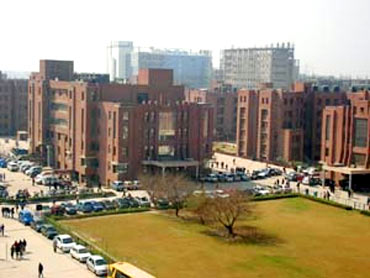 | « Back to article | Print this article |
Poll: India's top law colleges
The results of the 14th India Today annual survey of the top colleges in India were declared last month. The poll ranked 1,500 colleges in the streams of science, arts, commerce, medicine, engineering and law.
Earlier we featured the country's top science, commerce, arts and medical colleges, and asked you to vote for your top pick.
Today we take a look at the top 10 law colleges in the country and what sets them apart from the rest.
Move on to the next slide and register your votes on the last page of the slideshow...
No 1: National Law School of India University, Bangalore
Retaining the top spot for the second consecutive year is NLSIU, Bangalore.
Established in 1987, the college offers an integrated 5-year BA-LLB course which is taught through lectures, discussions, case studies, moot courts and project work.
Apart from its well-recognised undergrad programme, it also offers postgraduate programme (LLM), research degrees (MPhil, PhD, LLD) and a number of distance programmes. The institute has the distinction of achieving 100-per cent placements every year.
Move on to the next slide and register your votes on the last page of the slideshow...
No 2: National Academy of Legal Studies and Research University, Hyderabad
NALSAR, Hyderabad also stays put at number 2 this year.
Established in 1998, it has mananged (in a few short years) to create a reputation for superlative teaching and education standards.
The institute offers 70 seats (an additional 10 for foreign students) for its BA, LLB (honours) programme, 60 for its LLM course and 10 for its MPhil course. It also offers PhD and 1-year postgrad diploma courses in the subjects of patents, media, cyber law and international humanitatrian law.
The institute also has an active student exchange programme and is currently rated the best in national moot court competitions.
Move on to the next slide and register your votes on the last page of the slideshow...No 3: National Law Institute University, Bhopal
Moving up one spot to number 3 is NLIU, Bhopal.
Established in 1997, the university offers two programmes -- the BA, LLB (honours) which has 82 seats and the LLM programme which has three streams (general, humar rights and law, science and technology) with 50 seats.
Move on to the next slide and register your votes on the last page of the slideshow...
No 4: Faculty of Law, Delhi University, Delhi
Moving down one spot is Delhi University's Faculty of Law.
Established in 1924, it began with a single LLB programme as a part-time course. Today it has four law centres each with their own faculty and admin staff -- three for its undergrad LLB programme and a fourth for its LLM, PhD, Doctor of Civil Law (DCL) and Master of Comparative Law (MCL) programmes. With a faculty of over 90 teachers, the admits 1,500 students to its LLB course every year.
Move on to the next slide and register your votes on the last page of the slideshow...
No 5: Symbiosis Law School, Pune
Moving up one spot to number 5 this year is Symbiosis Law School.
Established in 1977, the college offers LLB and LLM programmes and a number of dilpoma courses in subjects like taxation law, banking law, cyber law and medical jurisprudence among others. Teaching methods apart from classroom sessions include seminars, guest lectures, moot courts and mentoring. The insitute also has a faculty and student exchange programme to encourage all-round development and learning.
Every year the college admits 200 students to is undergrad programme and 40 for the LLM programme per specialisation.
Move on to the next slide and register your votes on the last page of the slideshow...
No 6: West Bengal National University of Juridical Sciences, Kolkata
Moving up two notches to number 6 is NUJS, Kolkata.
Despite being just over a decade old (established in 1999), the university has created for itself an enviable reputation thanks to its modern teaching techniques and quality faculty. The institute runs a number of independent schools and centres of study such as the Centre for Consumer Protection and Welfare, Centre for Women and Law, School of Criminal Justice & Administration adn School of Economic & Business Laws.
Apart from its LLB, LLM, MPhil and PhD degree programmes, the college also offers short-term diploma and certificate programmes.
Move on to the next slide and register your votes on the last page of the slideshow...
No 7: ILS Law College, Pune
Moving down two spots from number 6 last year is Pune's ILS Law College.
Set up in 1924, the college has over 1,600 students currently enrolled in its courses, which include a 3-year and 5-year LLB programme, master's, diploma and distance learning programmes. The college's research arm -- the Institute of Advanced Legal Studies -- drives research in law and also offers diploma courses in consumer protection and housing laws.
The college has been rated an A+ institution by the NAAC.
Move on to the next slide and register your votes on the last page of the slideshow...
No 8: National Law University, Jodhpur
Slipping one spot to number 8 is NLU, Jodhpur.
Established in 2001, the university offers a range if integrated courses which include undergrad (BBA, LLB; BA, LLB and BSc, LLB) and postgrad (MBA, LLM, MA and MSc) programmes. It also has a well-recognised PhD programme and distance learning programme.
The university has set up 5 schools of study (policy science, management, science, languages and law) which allow students to integrate their law studies with other areas of interest, thus enabling them to specialise in specific fields.
Move on to the next slide and register your votes on the last page of the slideshow...
No 9: Gujarat National Law University, Gandhinagar
The only new entrant to the top 10 this year is GNLU.
Established in 2003, it offers three 5-year integrated undergrad law courses (BA, BCom and BSc LLB) all with honours programmes (160 seats). Its LLM programme admits 15 students every year with three specialisations on offer: IPR, new economic law, and law and good governance.
In addition to these, GNLU also offers diploma and PhD programmes and a foreign law course conducted by international law experts.
Move on to the next slide and register your votes on the last page of the slideshow...
No 10: Amity Law School, Delhi
And coming in at number 10, down one spot from last year, is Amity Law School.
Each year Amity admits 80 students to its integrated undergrad law programme which is mix of theory and practicals. The institute lays great emphasis on the practical applicaton of law theory and encourages students to participate in annual national-level moot court competitions, debates and declamation contests, internships and and research.
Move on to the next slide and register your votes...
Vote: India's best law college!
